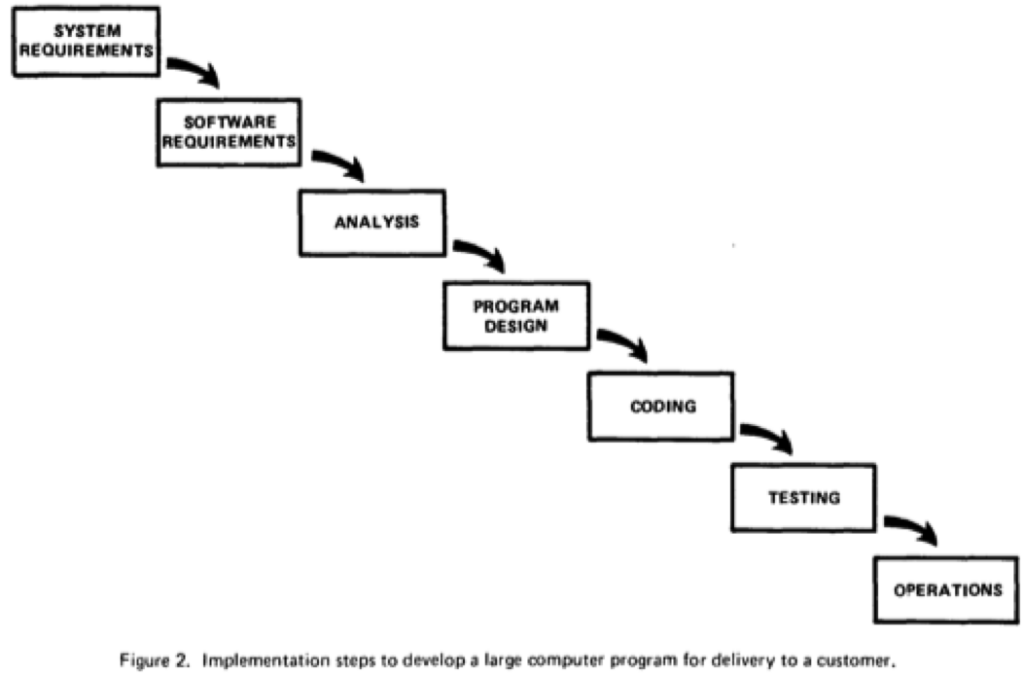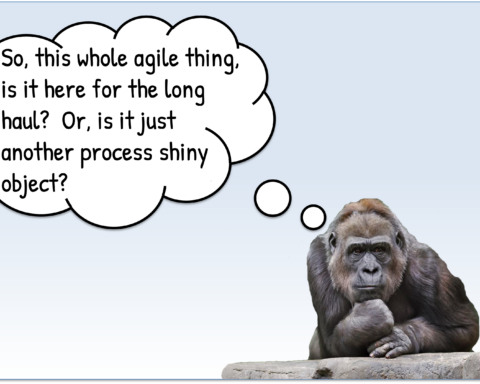Originally published in 2012 on the old site, AgileManiac, and on VersionOne’s blog. Check out more Words Mean Things blogs.
If you are someone who is passionate about agility, the word “Waterfall” is usually used in a derogatory manner or, at least, when you use it — you are making the stink eye. On the converse, if you are someone who practices what is popularly known as “Waterfall” Project Management you generally get offended or defensive when the phrase “Waterfall” is used.
Here’s how the conversation plays out:
Agile Practitioner - There's no way I'll ever work on a Waterfall project.
Waterfall Practitioner - There's no way I'll ever work on that Agile project.
Agile Practitioner - Waterfall projects are never successful and I hate being told what to do.
Waterfall Practitioner - Well at least we do work and don't practice that Agile witchcraft and all that kumbaya mumbo-jumbo.
Agile Practitioner - Well, your mama said Waterfall is for losers.
Waterfall Practitioner - Don't be talking about my mama …
[chaos ensues]

The sad part about this dialog is that although it’s somewhat fictitious, I’ve heard similar arguments at organizations and with colleagues across all spectrums of the project management continuum. The funny part about the dialog above and, in particular, the word Waterfall — no one is really clear who started calling it Waterfall. It’s obvious that when diagramming out a sequential process, it looks like a waterfall.

Often, people credit Dr. Winston Royce with waterfall, especially with respect to software engineering when he wrote a part in a white paper that describes this project management approach. The funny thing is that he goes on in that same white paper that is credited for starting the waterfall practices to describe how risky it is and that in order to mitigate the risks, each stage of the process should do things iteratively and incrementally.
Waterfall Project Management is really Sequential Project Management. Meaning we perform a sequence of activities and there are generally stages, maybe with sign-offs, and usually hand-offs to another group of people that are charged with performing the next sequence and consuming the output of the previous sequence. Some refer to this as Traditional Project Management but in most environments, it’s called Waterfall.
I’m not going to discuss the differences between the two and which approach I think is better — it should be clear since you are reading an agile blog. I will say that I think that the merits of each approach are obvious and each approach has challenges. The usage of one approach over the other really depends on the project and possibly the people engaged. What I am going to say is that in the world we all live in today, it is very likely that we’ll have a mix of projects using a more Agile approach and one using a more Sequential execution approach. Sometimes, we’ll have to join forces and combine the output of these approaches into one. Of course, we are learning and adapting ways to do this, but that too is another discussion altogether.
Let’s face it, when words start dividing people, we probably shouldn’t use them anymore. Instead call the project management approaches what they are – iterative and incremental, or sequential, or continuous, or simply ad-hoc. Also, be aware that the moniker we place on people isn’t really on the people, it’s on the processes by which they may operate in and they may be really comfortable in that process. Generally, they’ve put in a lot of blood and sweat to make it work. Sometimes we need to put the monikers aside and focus on “individuals and interactions over process and tools” (crazy how I got the Agile Manifesto into this blog, isn’t it?).
From now on, be aware and call it Sequential Project Management or even Traditional Project Management — unless you want to get into an argument about “your mama.”



